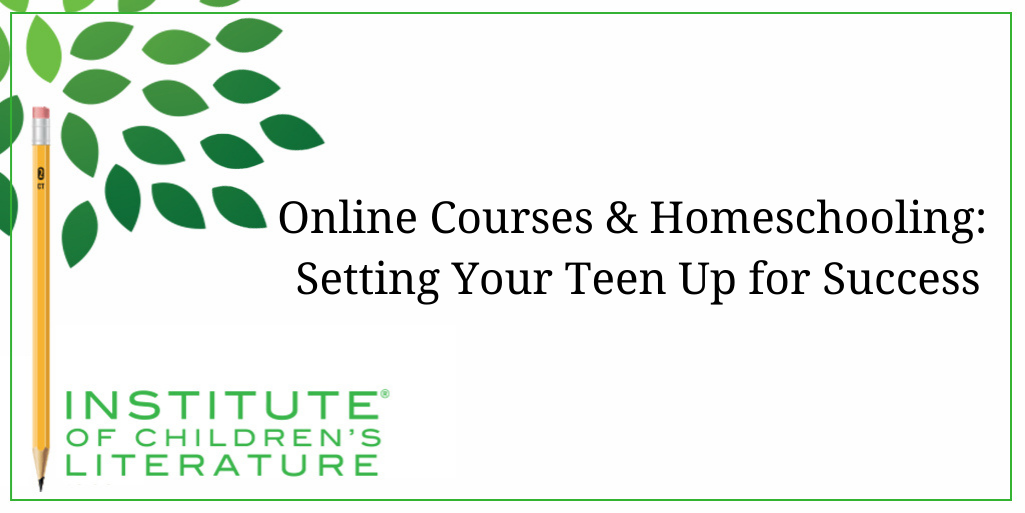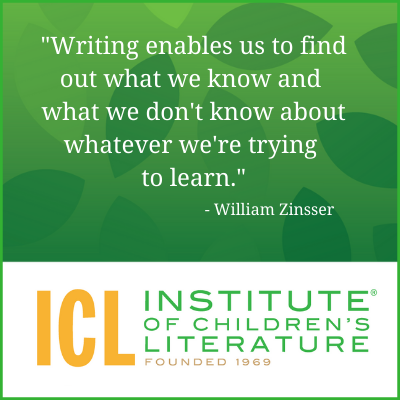
5 Ways Writers Can Prep for 2025 Goal Setting
Before we roll on to the new writing year, let’s harness our optimism for the blank slate before us and prepare for our 2025 Goal Setting just for writers.

The benefits of homeschooling are many and varied, and virtually any homeschool family can name the ones that mean the most to them. Still, nearly across the board, one of the most frequently named benefits is the ability to tailor the learning to best meet the needs of each student. Because of this, homeschool families often make use of online courses to dive into topics of specific interest. Art courses and craft courses and even engineering and science courses are frequent options, but writing courses also offer unique opportunities.
All good education includes writing. Learning to put words together to communicate ideas clearly is essential to living in the world, especially with so much of modern life lived online. Learning to write and write well, offers young people the chance to shape the world around them with their thoughts and has value in virtually every career. But learning to write well and clearly offers another unique possibility: publication (and with it: potential income.)

Young people, especially those in high school, are often frustrated with assignments that seem pointless and produce learning but no useful product. And teens are often interested in writing that communicates beyond themselves and thus spend time on different forms of social media because of that compelling need to communicate beyond themselves. If they put in the time and effort into the research, organization, and writing, they don’t want to abandon the end product. They want it to go further.
This is where writing courses that include elements of publication bring something new to the mix: the information and steps to take writers to the next step, from writing for its own educational sake to writing that can communicate to people in the greater world. On top of that, a student who approaches colleges and can say they’ve already been published tend to stand out, so doing the work of an online writing course can bring unexpected benefits.
Another value to online courses, whether art, writing, or something completely different is that parents don’t have to be the teachers of the course. In fact, in many of these courses, parents might choose to take the course too. In this way, an online course can offer parents and children an opportunity to learn together and help one another along the way. This can be a bonding experience, but it also imparts its own important lesson, namely that learning is a life-long experience.

Online courses in a variety of different subjects are available for virtually any age. In fact, they’ve thrived under the isolation of the pandemic when parents (even those not homeschooling) sought out new and exciting learning opportunities for their children. But since this is a writing blog, we should focus on online courses in writing. These usually do have age restrictions, often to allow students to get the most out of the course by being capable of working the course without undo frustration. For courses without age restrictions, certain things really are necessary. Let’s look at two obvious ones.
The student must be able to process instructions. Writing classes involve a great deal of reading. Exercise directions and instructions must be read and comprehended. Mentor texts must be read and analyzed. And it’s not enough simply to be fluent in decoding words, students must have a level of reading ease in comprehending ideas like character and motivation and plot.

Students who take online courses often carry something unique into the situation: commitment. After all, we rarely dabble in school. We come in with the mindset that the work is there and we’re going to need to do it. Because of this, online courses (which sometimes languish with adults who are struggling to commit the necessary time to the course) meet teens at the sweet spot where they are interested in the subject matter, eager to succeed, and comfortable with the idea that the course will take a commitment of time and work. And because the student can see a goal and a purpose to the course, it can bring a renewed interest to school work.
So now may be the time to consider adding an online course to your teen’s life, the benefits will amaze you.
With over 100 books in publication, Jan Fields writes both chapter books for children and mystery novels for adults. She’s also known for a variety of experiences teaching writing, from one session SCBWI events to lengthier Highlights Foundation workshops to these blog posts for the Institute of Children’s Literature. As a former ICL instructor, Jan enjoys equipping writers for success in whatever way she can.

Before we roll on to the new writing year, let’s harness our optimism for the blank slate before us and prepare for our 2025 Goal Setting just for writers.

Writers can be thin-skinned when it comes to getting feedback on their work. Let’s look at 4 ways to positively deal with constructive criticism!

Rejection is part of the territory when it comes to being a writer. Today we offer reflection for writers to help redirect your efforts after a rejection.
1000 N. West Street #1200, Wilmington, DE 19801
© 2024 Direct Learning Systems, Inc. All rights reserved.
1000 N. West Street #1200, Wilmington, DE 19801
© 2024 Direct Learning Systems, Inc. All rights reserved.
1000 N. West Street #1200, Wilmington, DE 19801
© 2024 Direct Learning Systems, Inc. All rights reserved.
1000 N. West Street #1200, Wilmington, DE 19801
© 2024 Direct Learning Systems, Inc. All rights reserved.

1000 N. West Street #1200, Wilmington, DE 19801
© 2025 Direct Learning Systems, Inc. All rights reserved.

1000 N. West Street #1200, Wilmington, DE 19801
©2025 Direct Learning Systems, Inc. All rights reserved. Privacy Policy.
3 Comments
What about stories from real life for children and teenagers?